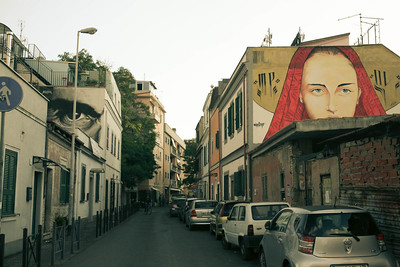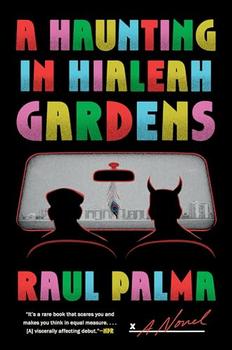Summary | Excerpt | Reviews | Beyond the Book | Read-Alikes | Genres & Themes | Author Bio

A Novel
by Celina Baljeet BasraThis article relates to Happy
 A radish farm worker in Celina Baljeet Basra's Happy relays a tale of injustice at his previous job: a group of exploited immigrants, an attack, and an uprising. This story is one we might imagine to be derived from a compilation of worker mistreatments, but the specifics are based on a true story of immigrant fruit pickers in Rosarno, in southern Calabria, Italy, where racist attacks by locals in 2010 sparked an uprising of hundreds of workers. One of these workers, Suleiman Diara, left Rosarno and moved to Rome, where he and a business partner founded Barikamà ("resilience" in Bambara), a workers' co-operative. "I had to find a way to stop being exploited while being financially independent," Diara said in an interview with FairPlanet.
A radish farm worker in Celina Baljeet Basra's Happy relays a tale of injustice at his previous job: a group of exploited immigrants, an attack, and an uprising. This story is one we might imagine to be derived from a compilation of worker mistreatments, but the specifics are based on a true story of immigrant fruit pickers in Rosarno, in southern Calabria, Italy, where racist attacks by locals in 2010 sparked an uprising of hundreds of workers. One of these workers, Suleiman Diara, left Rosarno and moved to Rome, where he and a business partner founded Barikamà ("resilience" in Bambara), a workers' co-operative. "I had to find a way to stop being exploited while being financially independent," Diara said in an interview with FairPlanet.
Barikamà started with artisanal yogurt production, then moved into organic vegetable production. The co-op's warehouse is headquartered in Pigneto, a historic working-class neighborhood of Rome, and its production facilities are based at Casale di Martignano, a farmhouse around 22 miles outside of the city, where the group entered into agreements with the owners to rent yogurt production machinery and farm the property. In 2020, the co-operative was producing 200 liters of yogurt per week and cultivating about 15 acres of land. Barikamà also played a unique role in supporting the local community during the pandemic lockdowns. The co-op workers took on home deliveries in addition to selling at local markets, feeding people during a time of fear and uncertainty.
The proceeds go towards the co-op's expenses as well as revenue for members, which was 500-700 euros per month in the second half of 2019. Though this is not a far cry from the 20 euros per day workers earned picking fruit in Rosarno, the conditions are better and they all have ownership of the final product. Future goals for the group include, according to the Guardian's summary of comments from Cheikh, another co-op member, "to gain more autonomy, extend distribution and increase wholesale sales."
The group has also helped bridge the divide between workers and local Italians, with member Sidiki Kone remarking, "[b]y touring local markets I've learned the language and met many nice Italians…[b]efore, I thought there were no good people in this country," speaking of his time in Rosarno. The co-operative also employs Italians with Asperger's syndrome.
Italy is arguably a country particularly well-suited for workers' co-operative movements. The Marcora Act of the 1980s seeks to protect those whose workplaces are in bankruptcy crisis, and has provided a framework for worker buyouts of organizations (including farms). The European Research Institute on Cooperative and Social Enterprises credited the act as "instrumental in facilitating employee buyouts, primarily by providing a framework that enables collaboration among all of the various stakeholders involved in the process, and also by making available financial support schemes." We may see the creation of more Italian worker-owned co-operatives in the future.
The Pigneto neighborhood of Rome, location of the Barikamà warehouse
Photo by Davide Costanzo (CC BY 2.0)
Filed under Society and Politics
![]() This article relates to Happy.
It first ran in the January 24, 2024
issue of BookBrowse Recommends.
This article relates to Happy.
It first ran in the January 24, 2024
issue of BookBrowse Recommends.




Every good journalist has a novel in him - which is an excellent place for it.
Click Here to find out who said this, as well as discovering other famous literary quotes!
Your guide toexceptional books
BookBrowse seeks out and recommends the best in contemporary fiction and nonfiction—books that not only engage and entertain but also deepen our understanding of ourselves and the world around us.